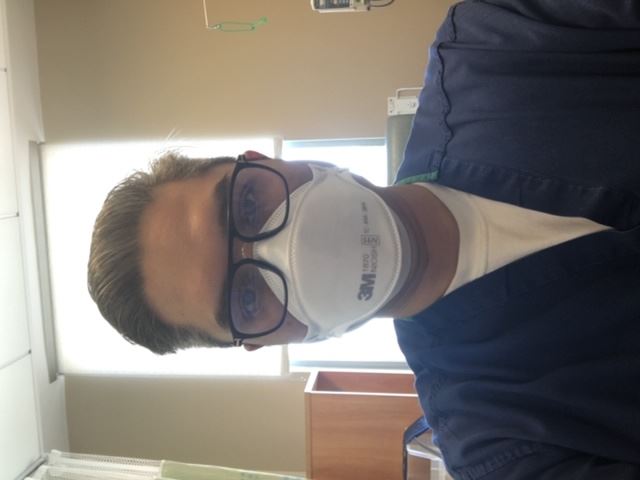
Covid Story from the Frontline.pdf Lorenz De Leon.pdf
By Lorenz S. De Leon, BSN, RN, MBANE-BC
January 2020 marks the beginning of the year of nurses and midwives. All nursing publication were celebrating “2020 The Year of the Nurses”-- even on television a commercial was played thanking Nurses and Midwives. Our manager was already planning to celebrate Nurses Week 2020 going to make it a little special. My colleagues and I were talking about our summer trips and the Corona virus is not in anyone’s vocabulary-- it was something that is happening in China.
February came and a few cases in the U.S. were reported. No need to be alarmed I thought, just like in the past Ebola, SARS and H1N1 it will eventually go away. Then on March 9 , 2020, Italy’s prime minister announced that their government is imposing national quarantine; restricting movement of the population except for necessary work. Here in the United States as the cases are still very minimal, no restrictions has been given by the government. That Monday I came to work and I was in disbelief that more than half of the staff are not aware of what is happening in Italy and COVID-19. As a lead nurse in a typical nurse’s reaction, once a problem is identified the nursing process is utilized. Awareness about the current issue is lacking and one intervention is to increase people’s awareness. One simple solution is to keep one of the televisions in the clinical area on CNN to get more information about COVID-19 and learn ways to mitigate the spread of infection. We then started conversations about how we will keep everyone safe based on CDC guidelines during this time. Concerns about spread of infection to patients were communicated to our manager and interventions suggested. Signs and symptoms of the disease were changing constantly and information are scarce which contributed to increased anxiety among staff. It prompted us to start wearing masks all day in our department even though it was prohibited at our workplace in the beginning. As concerns for infection grew and wearing a mask for long periods were not allowed, one day all of us in my department started to have the “sniffles”. We were then allowed to wear masks to keep everyone safe. As we watched the number of cases and mortality from COVID-19 increase in the U.S. and around the world those first three weeks were so stressful to all staff members. Physiological manifestation of stress and anxiety started. For instance, I was having GI issues such as frequent heartburn and diarrhea almost on a daily basis. One of my co-workers started experiencing anxiety and unable to sleep, another got so worried to catch the virus spreading it to her family that she decided not to have any contact with them for several days.
When California started the shelter at home order, our department remained open and all team members came to work every day even the risk of contracting COVID-19 is ever present. Not one staff took a leave of absence or day-off even though our organization gave employees the option to take a leave of absence with appropriate compensation during this time. Everyone seemed to understand why WE are here. This act of selflessness is inspiring and as the lead nurse I made sure that communication between staff and management team are constantly flowing. As a frontline leader, I believe that it is my duty to bridge that gap. I gathered as much information as I can from friends and relatives working in healthcare locally as well as in Europe--took their best practices and provide that information to our leadership and applied whatever is applicable to our department. We continue having great teamwork, kept the morale high, and worked closely with our supervisor and manager to address concerns of each staff member and ensure that we execute our tasks. Like every hospital in the nation our PPE became limited as well, and in our line of work of providing chemotherapy PPE is essential. Having an open communication with management, we are able to manage the lack of supplies and equipment. Able to continue providing safe and effective care to our patients. It may have been challenging however, we learned that effectively communicating your concerns and providing the rationale will enable you achieve your objectives.
